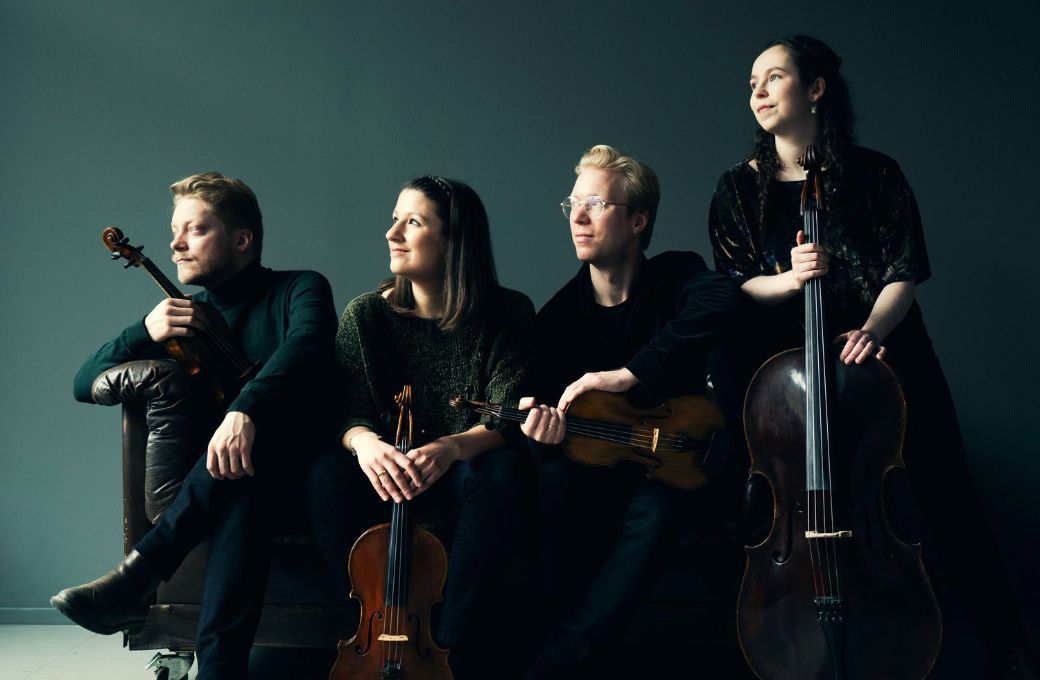Returning to Sheffield was, as founder member Johannes Marmen said, “like coming home”. His quartet spent 2015-18 as recipients of Music in the Round’s Bridge scheme, which aims to support promising young musicians at the start of their professional careers. Mentoring from the late Peter Cropper, visionary leader of local team The Lindsays and founder of Music in the Round, underscored one of the Marmen Quartet’s key characteristics: like Cropper, the members of the quartet are risk-takers. The results are, perhaps inevitably, uneven, but the moments when they miss the target are worth accepting in exchange for those times when everything goes gloriously right.

In the opening work of the evening, Mozart’s String Quartet in E flat major, K428, the signs were not promising. Right from the opening bars the quartet exaggerated changes in dynamics, particularly sudden pianissimos, alongside moments of silence and micropauses between phrases that destabilised the music’s flow. Studious absence of vibrato left individual string lines somewhat exposed and there were moments of nerve-jangling intonation. At the conclusion of the work, Johannes Marmen half-apologised for a performance that was ‘a bit aggressive’, justifying it by noting Mozart’s rare use of fortissimo markings in places. But in the end what seemed most noticeable was that this interventionist approach deprived the packed audience of hearing Mozart’s chief qualities: his ability to sustain a singing line and his effortless, unfolding lyricism, even in the most dramatic moments.
What came next, however, was truly revelatory. What had seemed fussy and disruptive in Mozart became inspirational in Janáček’s torrid yet ecstatic String Quartet no. 2, “Intimate Letters”. The quartet was born out of Janáček’s obsession with the much younger Kamila Stösslová, and the ‘intimate letters’ in question are some of the 730 or so he wrote to her in the final eleven years of his life. The viola in effect represents Kamila herself, and the part was played with mercurial brilliance by Bryony Gibson-Cornish: what a way to spend the evening of her 30th birthday! In the programme notes for this concert, Nigel Simeone quoted Czech novelist Milan Kundera’s comment about Janáček “capturing unknown, never expressed emotions, and capturing them in all their immediacy”. From the opening movement which, Janáček wrote to Kamila, described “when I saw you for the first time”, to the final one, “filled with a great longing – as if it were fulfilled”, the Marmens succeeded in wringing every last drop of turbulent yearning and passion from this, the most truly intimate of Janáček’s late masterpieces.
If the first half of the programme was a mixed affair, Beethoven’s String Quartet in E minor, Op.59 no.2, brought the evening to a triumphant close. It has become the fashion these days for young quartets to embark on a complete cycle of Beethoven quartets quite early in their careers, as the Marmen Quartet has done; no doubt they will return to this pinnacle of the quartet repertoire in a couple of decades and find much more to say, but in the meantime their gifts were once more to the fore in this performance. Particularly arresting was the soulful slow movement, marked “To be played with great feeling”, an instruction followed to the letter by Marmen on first violin. On this evidence, risk-taking brings its own reward. There was even time for an encore: what appeared to be the quartet’s own arrangement of Somewhere Over the Rainbow, designed for the funeral of Marmen’s wife’s grandfather, and ending the evening in a mood of poignant and bitter-sweet tenderness.


